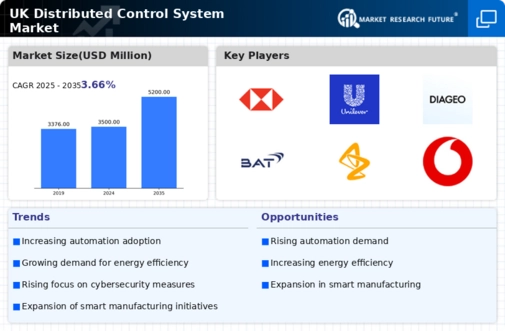UK Distributed Control System Market Summary
The United Kingdom Distributed Control System market is projected to grow from 3500 USD Million in 2024 to 5200 USD Million by 2035.
Key Market Trends & Highlights
UK Distributed Control System Market Key Trends and Highlights
- The market is expected to experience a compound annual growth rate of 3.66 percent from 2025 to 2035.
- By 2035, the market valuation is anticipated to reach 5200 USD Million, indicating robust growth.
- In 2024, the market is valued at 3500 USD Million, reflecting a solid foundation for future expansion.
- Growing adoption of automation technologies due to increased efficiency demands is a major market driver.
Market Size & Forecast
| 2024 Market Size | 3500 (USD Million) |
| 2035 Market Size | 5200 (USD Million) |
| CAGR (2025 - 2035) | 3.66% |
Major Players
BP (GB), HSBC Holdings (GB), Unilever (GB), Diageo (GB), GlaxoSmithKline (GB), British American Tobacco (GB), AstraZeneca (GB), Vodafone Group (GB), Barclays (GB)

















